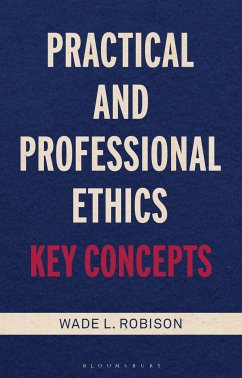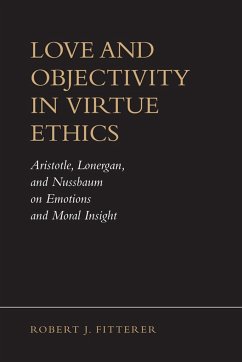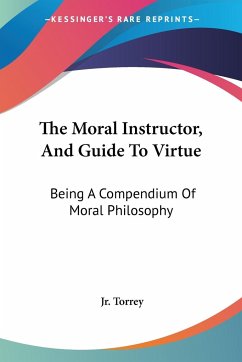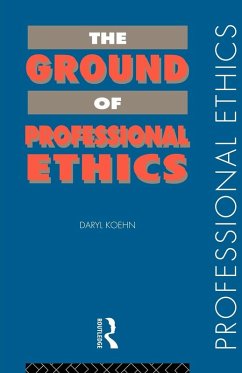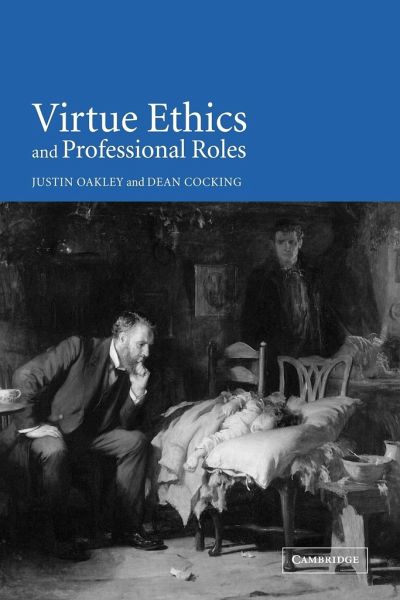
Virtue Ethics and Professional Roles
Versandkostenfrei!
Versandfertig in 1-2 Wochen
58,99 €
inkl. MwSt.

PAYBACK Punkte
29 °P sammeln!
Shows that virtue ethics offers a promising new approach to the ethics of professional roles.Professionals, it is said, have no use for simple lists of virtues and vices. The complexities and constraints of professional roles create peculiar moral demands on the people who occupy them, and traits that are vices in ordinary life are praised as virtues in the context of professional roles. Should this disturb us, or is it naive to presume that things should be otherwise? Taking medical and legal practice as key examples, Justin Oakley and Dean Cocking develop a rigorous articulation and defence ...
Shows that virtue ethics offers a promising new approach to the ethics of professional roles.
Professionals, it is said, have no use for simple lists of virtues and vices. The complexities and constraints of professional roles create peculiar moral demands on the people who occupy them, and traits that are vices in ordinary life are praised as virtues in the context of professional roles. Should this disturb us, or is it naive to presume that things should be otherwise? Taking medical and legal practice as key examples, Justin Oakley and Dean Cocking develop a rigorous articulation and defence of virtue ethics, contrasting it with other types of character-based ethical theories and showing that it offers a promising new approach to the ethics of professional roles. They provide insights into the central notions of professional detachment, professional integrity, and moral character in professional life, and demonstrate how a virtue-based approach can help us better understand what ethical professional-client relationships would be like.
Review quote:
'This excellent but neglected volume has something for everyone. Both sceptics and proponents of virtue ethics will appreciate the carefully constructed arguments that go to make this book an exemplar of good philosophy.' Nursing Philosophy
Table of contents:
Preface; Acknowledgements; Introduction; 1. The nature of virtue ethics; 2. The regulative ideals of morality and the problem of friendship; 3. A virtue ethics approach to professional roles; 4. Ethical models of the good general practitioner; 5. Professional virtues, ordinary vices; 6. Professional detachment in health care and legal practice; Bibliography; Index.
Professionals, it is said, have no use for simple lists of virtues and vices. The complexities and constraints of professional roles create peculiar moral demands on the people who occupy them, and traits that are vices in ordinary life are praised as virtues in the context of professional roles. Should this disturb us, or is it naive to presume that things should be otherwise? Taking medical and legal practice as key examples, Justin Oakley and Dean Cocking develop a rigorous articulation and defence of virtue ethics, contrasting it with other types of character-based ethical theories and showing that it offers a promising new approach to the ethics of professional roles. They provide insights into the central notions of professional detachment, professional integrity, and moral character in professional life, and demonstrate how a virtue-based approach can help us better understand what ethical professional-client relationships would be like.
Review quote:
'This excellent but neglected volume has something for everyone. Both sceptics and proponents of virtue ethics will appreciate the carefully constructed arguments that go to make this book an exemplar of good philosophy.' Nursing Philosophy
Table of contents:
Preface; Acknowledgements; Introduction; 1. The nature of virtue ethics; 2. The regulative ideals of morality and the problem of friendship; 3. A virtue ethics approach to professional roles; 4. Ethical models of the good general practitioner; 5. Professional virtues, ordinary vices; 6. Professional detachment in health care and legal practice; Bibliography; Index.






